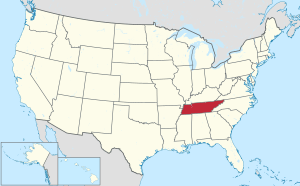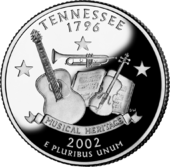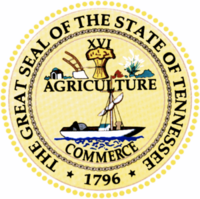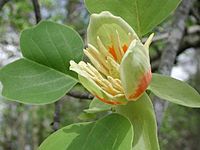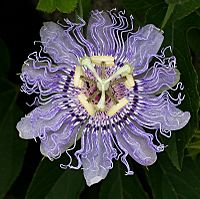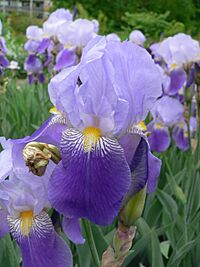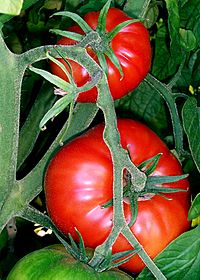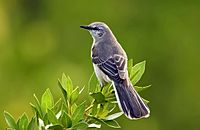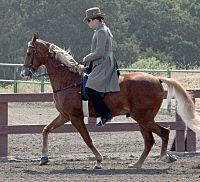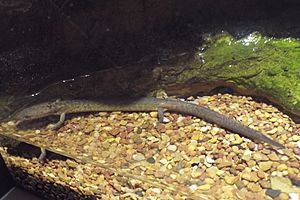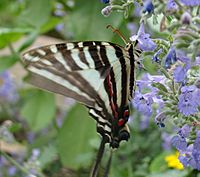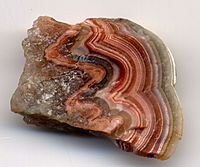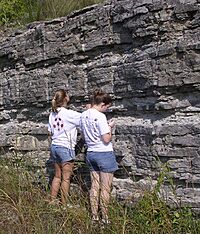List of Tennessee state symbols facts for kids
Welcome to Tennessee, also known as the "Volunteer State"! Like many places, Tennessee has special symbols that represent its history, nature, and people. These symbols are chosen by the state's lawmakers, called the Tennessee General Assembly.
The very first state symbol was the state seal, created way back in 1796. The design we see today was chosen in 1987. Tennessee also has a state slogan, "Tennessee—America at Its Best," which was picked in 1965. Its state motto is "Agriculture and Commerce," chosen in 1987. These words are even on the state seal!
Tennessee got its nickname, "The Volunteer State," during the War of 1812. Many people from Tennessee bravely volunteered to join the military when Governor Willie Blount asked for help.
Contents
- Discover Tennessee's Official Symbols
- The State Flag: A Symbol of Unity
- The State Seal: History and Values
- The State Tree: Tulip Poplar
- Tennessee's State Flowers: Wild and Cultivated
- The State Fruit: Tomato
- Tennessee's State Birds: Mockingbird and Bobwhite Quail
- The State Fish: Smallmouth Bass and Channel Catfish
- The State Wild Animal: Raccoon
- The State Horse: Tennessee Walking Horse
- The State Reptile: Eastern Box Turtle
- The State Amphibian: Tennessee Cave Salamander
- Tennessee's State Insects: Firefly, Ladybeetle, Honeybee, and Zebra Swallowtail
- Tennessee's State Rocks: Agate and Limestone
- The State Fossil: Pterotrigonia thoracica
- The State Rifle: Barrett M82/M107
- Tennessee's State Songs
- The State Poem: "Oh Tennessee, My Tennessee"
- The State Folk Dance: Square Dance
- See also
Discover Tennessee's Official Symbols
The State Flag: A Symbol of Unity
Tennessee's state flag was chosen in 1905. It has three white stars that stand for the state's three main parts: West, Middle, and East Tennessee. These parts are called "Grand Divisions."
The flag's designer, LeRoy Reeves, explained that the stars are "bound together by the endless circle of the blue field." This means the three parts of Tennessee are united as one.
The State Seal: History and Values
Tennessee's state seal was updated in 1987, but its design goes back to 1801. The seal shows the words "Agriculture" and "Commerce," along with the date Tennessee became a state. The number 16 is shown as a Roman numeral, reminding everyone that Tennessee was the 16th U.S. state to join the United States.
The seal highlights "Agriculture" with pictures of a plow, a bundle of wheat, and a cotton plant. "Commerce" is shown with a picture of a riverboat, representing trade and business.
The State Tree: Tulip Poplar
In 1947, the tulip poplar (Liriodendron tulipifera) became Tennessee's official state tree. Lawmakers chose it because it grows all over the state. Also, early pioneers used its wood a lot to build houses, barns, and other important farm buildings.
Tennessee's State Flowers: Wild and Cultivated
Tennessee actually has two state flowers! The purple passionflower (Passiflora incarnata) is the state's wildflower. The iris is the state's cultivated flower, meaning it's often grown in gardens.
Back in 1919, school children in Tennessee voted for the state flower. They chose the passionflower, which is also called ocoee by the Cherokee people. It grows naturally all over Tennessee.
Later, in 1933, gardeners wanted the iris to be the state flower. Nashville was even known for its beautiful irises. So, the state lawmakers chose the iris as the state flower too. This meant Tennessee had two state flowers for a while!
To clear things up, in 1973, lawmakers decided that the passionflower would be the state wildflower. The iris would be the state cultivated flower. While no specific color of iris was named, the Tennessee Department of State usually considers the purple iris to be the state flower.
The State Fruit: Tomato
In 2003, the tomato became Tennessee's official state fruit. At that time, tomatoes were the biggest fruit crop grown in the state. Areas like Grainger County and Ripley in Lauderdale County are well-known for growing lots of tomatoes.
Tennessee's State Birds: Mockingbird and Bobwhite Quail
Tennessee has two state birds! The mockingbird (Mimus polyglottos) was chosen as the state bird in 1933. It was picked earlier that year by the Tennessee Ornithological Society.
The bobwhite quail (Colinus virginianus), also called the partridge, became the official state game bird in 1988.
The State Fish: Smallmouth Bass and Channel Catfish
Tennessee also has two state fish. The official state sport fish, chosen in 2005, is the smallmouth bass (Micropterus dolomieu). It's a popular fish for people who enjoy fishing.
The state commercial fish, chosen in 1988, is the channel catfish (Ictalurus lacustris). You can find channel catfish in most Tennessee streams and many lakes. They are also raised in fish farms.
The State Wild Animal: Raccoon
The raccoon (Procyon lotor) became Tennessee's official state wild animal in 1971.
The State Horse: Tennessee Walking Horse
The Tennessee Walking Horse was chosen as the official state horse in 2000. This breed is famous for its unique smooth gaits.
The State Reptile: Eastern Box Turtle
Tennessee's state reptile is the eastern box turtle (Terrapene carolina). It was chosen in 1995.
The State Amphibian: Tennessee Cave Salamander
In 1995, the Tennessee cave salamander (Gyrinophilu palleucus) became the official state amphibian. This is a large salamander that lives in streams inside limestone caves. You can find it in the southern Cumberland Plateau and the Nashville Basin.
Tennessee's State Insects: Firefly, Ladybeetle, Honeybee, and Zebra Swallowtail
Tennessee has four different insects as official state symbols!
The firefly or lightning bug (from the Lampyridae family) and the ladybeetle (also called ladybug or ladybird beetle, Coccinella septempunctata) were chosen as state insects in 1975. The Photinus pyralis is the most common firefly in Tennessee.
In 1990, the honeybee (Apis mellifera) was named the official state agricultural insect. This is because honeybees are very important for farming.
Most recently, in 1995, the zebra swallowtail (Eurytides marcellus) became Tennessee's official butterfly.
Tennessee's State Rocks: Agate and Limestone
The Tennessee General Assembly has chosen two different types of sedimentary rock as official state rocks.
The agate was the state's first official rock in 1969. Agate is a type of quartz that is considered a semi-precious gemstone. You can find agate in several places across Tennessee, like Hawkins County and Bedford County.
Limestone, which is very common throughout Tennessee, was declared the official state rock in 1979. A special type of limestone called Tennessee marble is dug up in East Tennessee and used to build many structures.
The State Fossil: Pterotrigonia thoracica
The Pterotrigonia thoracica was named the official state fossil in 1998. Fossils are the remains of ancient life preserved in rock.
The State Rifle: Barrett M82/M107
The Barrett M82/M107 was chosen as the official state rifle in February 2016.
Tennessee's State Songs
In 2003, songwriting was named an official state art form in Tennessee. Because of this, Tennessee has eleven official state songs!
- "My Homeland, Tennessee" (1925)
- "When It's Iris Time in Tennessee" (1935)
- "My Tennessee" (1955) - This is the official song for public schools.
- "Tennessee Waltz" (1965)
- "Rocky Top" (1982)
- "Tennessee" (1992)
- "The Pride of Tennessee" (1996)
- "Smoky Mountain Rain" (2010)
- "Tennessee" (2011)
- "The Tennessee in Me" (2023)
- "Copperhead Road" (2023)
There's also a rap song called "A Tennessee Bicentennial Rap: 1796-1996." It was named the state's "Official Bicentennial Rap" song in 1996. It was created to help people, especially students, learn about Tennessee's history in a fun way.
The State Poem: "Oh Tennessee, My Tennessee"
A poem called "Oh Tennessee, My Tennessee" became the official state poem in 1973. It was written by U.S. Navy Admiral William P. Lawrence. He wrote it while he was held as a prisoner of war in North Vietnam.
The State Folk Dance: Square Dance
In 1980, the square dance was chosen as Tennessee's official state folk dance. Lawmakers described it as a "uniquely attractive art form" that is still a fun part of Tennessee's traditions.
See also
- Lists of United States state symbols
- Tennessine - an element named for the state
 | Madam C. J. Walker |
 | Janet Emerson Bashen |
 | Annie Turnbo Malone |
 | Maggie L. Walker |


